May — November 2016 School News
December 1, 2016
Read more at sph.unc.edu/news.
.
Key to Departments
BIOS Biostatistics
EPI Epidemiology
ESE Environmental Sciences and Engineering
HB Health Behavior
HPM Health Policy and Management
MCH Maternal and Child Health
NUTR Nutrition
PHLP Public Health Leadership Program
Selected Publications
Student-led publications are marked with **.
.
Cancer

Dr. Stacie Dusetzina
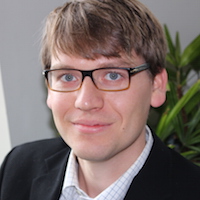
Aaron Winn
Stacie Dusetzina, PhD, assistant professor of pharmaceutical outcomes and policy in the UNC Eshelman School of Pharmacy and of HPM at the Gillings School, has written extensively about the price of and access to cancer drugs. In an April 28 article in JAMA Oncology, she found that oral cancer drugs introduced in 2014 were six times more expensive than those introduced in 2000. Dusetzina presented her research in June to the President’s Cancer Panel (which is chaired by Dean Barbara K. Rimer). In a May 16 article in The Oncologist, Dusetzina found that a drug that offered people with liver cancer a longer life was less effective in Medicare patients, who likely had more extensive cancer. In an Oct. 3 article in Journal of Clinical Oncology, she and lead author Aaron Winn, HPM doctoral student, reported that out-of-pocket costs for some cancer patients with Medicare delayed treatment with drugs that improved survivorship dramatically. Time interval to starting drug treatment was shorter for patients who had subsidies to help cover drug costs.

Dr. Melissa Troester
Research led by Melissa Troester, PhD, associate professor of EPI, published May 4 in npj Breast Cancer, a Nature partner journal, identified a particular gene expression pattern in normal- appearing breast tissue around tumors that was linked to lower 10-year survival rates for women with estrogen receptor-positive breast cancer. About 70 percent of breast cancers are estrogen receptor-positive.

Dr. Christine Rini
** Christine Rini, PhD, research associate professor, and Yael Symes, MSPH, doctoral student, both in HB, found that cancer survivors with negative attitudes about social support may have lower quality of life. Patients in the study who preferred not to use their social resources tended to expect low levels of support and to experience support as negative. Their study was published in the June Annals of Behavioral Medicine.

Dr. Anne Meyer
Anne Marie Meyer, PhD, research assistant professor of EPI, and Ethan Basch, MD, MSc, professor of HPM, led a study, published June 28 in Cancer, reporting that adults with acute myeloid leukemia (AML) treated in-hospital with chemotherapy had a higher statistical risk of dying from the disease if they lived in northeastern N.C., in an area between Wilson and Roanoke Rapids. No clear reason for the inequities was determined, but researchers thought factors might include less robust medical infrastructure and fewer physicians, who were less experienced in this complex but urgent diagnosis.
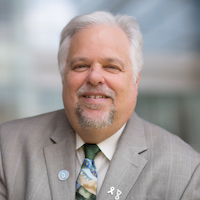
Dr. Andrew Olshan

Dr. Bryce Reeve
** An analysis of the quality of life of 2,100 breast cancer survivors in N.C. found differences in how black and white women functioned and felt, spiritually and physically, during treatment and two years later. Overall, black women reported better spiritual well-being, and white women better physical or functional well-being, both at diagnosis and throughout the study period. However, two years out, more black women reported feeling better physically, narrowing the inequity and suggesting that their experiences with the health-care system may have had positive impact upon their overall health. Published in the September Breast Cancer Research and Treatment, the work was co-authored by Laura Pinheiro, HPM doctoral candidate, Andrew Olshan, PhD, Barbara Sorenson Hulka Distinguished Professor in Cancer Epidemiology and EPI chair, Bryce Reeve, PhD, HPM professor, and others.
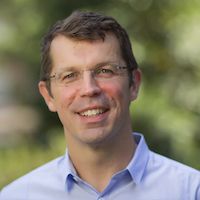
Dr. Noel Brewer
A national survey found that parents were more likely to agree that laws requiring students to be vaccinated against HPV for school entry are a “good idea” when there is an opt-out clause. Noel Brewer, PhD, professor of HB, is senior author of the study, published Aug. 19 in Cancer, Epidemiology, Biomarkers and Prevention (CEB&P). Brewer also worked with lead author Teri Malo, PhD, postdoctoral fellow at UNC Lineberger, to find that 65 percent of parents surveyed would be motivated to obtain the HPV vaccination for their children if a physician said, ‘I strongly believe in the importance of this cancer-preventing vaccine for [your child’s name].’ Findings were published in CEB&P on Sept. 30.
Obesity

Dr. Deborah Tate
Deborah Tate, PhD, professor of HB and NUTR, co-authored a JAMA Internal Medicine study, published online May 2, finding that two specific diet and exercise strategies prevented weight gain and obesity among young adults. These included a daily ‘small changes’ approach and a periodic ‘large changes’ approach. Her team found that making a big change in diet and exercise at the start of a weight loss program was slightly more effective at sustaining weight loss.

Dr. Lindsey Taillie
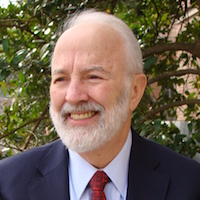
Dr. Barry Popkin
Lindsey Smith Taillie, PhD, research assistant professor of NUTR, and Barry Popkin, PhD, W.R. Kenan Distinguished Professor of NUTR, co-authored a study of Mexico’s ‘junk food tax,’ finding that purchases of taxed food items declined by more than 5 percent during the first year the tax was implemented. The study was published July 5 in PLOS Medicine.

Dr. Leslie Lytle
A technology-based intervention to prevent weight gain among young adults in community college effectively reduced consumption of fast food and improved overall weight-related behavioral patterns. Leslie Lytle, PhD, professor and chair of HB, published findings June 7 in Preventive Medicine.
Environment
** Hang Nguyen, MS, ESE doctoral student, is first author of a study that tested a new methodology to examine the genomic response of lung cells to real-world mixtures of air pollutants. Many gases transform after being released into the atmosphere, and fully understanding health risks of exposure requires the study of complex mixtures of fresh and oxidized gases that cannot be replicated in the lab. Nguyen’s work was published online Feb. 18 in Environmental Health Insights.
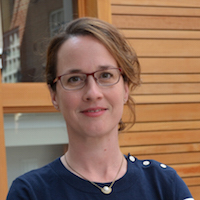
Dr. Stephanie Engel
Stephanie Engel, PhD, associate professor of EPI, is a member of Project TENDR, a group of leading scientists, medical experts and children’s health advocates who agree that there is a link between exposures to toxic chemicals and children’s risks for neurodevelopmental disorders. The group’s statement was published July 1 in Environmental Health Perspectives.
Chronic Diseases
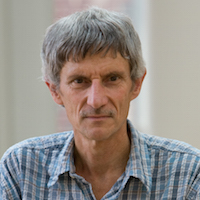
Dr. David Couper
In a May 12 article in The New England Journal of Medicine, David Couper, PhD, BIOS clinical professor, found that about half of smokers have respiratory symptoms similar to those for chronic obstructive pulmonary disease (COPD) — despite having had tests that show normal lung function. The results prompted researchers to question whether the definition of COPD should include people with these symptoms.

Dr. Edwin Fisher
** A systematic review published in the July American Journal of Public Health showed that peer support is an effective strategy for helping people not easily reached by conventional prevention and health-care initiatives. Rebecca Sokol, HB doctoral student, and Edwin Fisher, PhD, professor and global director of Peers for Progress, were co-authors.
Global Health

Dr. Dilshad Jaff

Dr. Kavita Ongechi
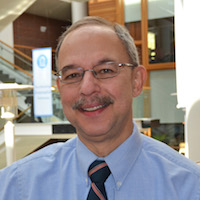
Dr. Lewis Margolis
Dilshad Jaff, MD, MPH, alumnus and research adviser in the Gillings Global Gateway®, Kavita Singh Ongechi, PhD, research associate professor of MCH, and Lewis Margolis, MD, MPH, associate professor of MCH, co-authored an article examining the complex and disturbing pattern of health-care professionals being targeted in war zones. The commentary was published online July 4 in Medicine, Conflict and Survival.
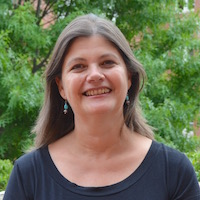
Dr. Nora Franceschini

Dr. Jianwen Cai
A large international collaboration, led by Nora Franceschini, MD, MPH, research associate professor of EPI, and Jianwen Cai, PhD, Cary C. Boshamer Distinguished Professor and interim chair of BIOS, marks the first study of kidney function involving individuals from four continents. Published Sept. 1 in American Journal of Human Genetics, the study reported 20 genetic regions that affect kidney function and are common across all ethnic ancestries. A second article, published Sept. 20 in the Journal of the American Society of Nephrology, found that genetic variations specific to African ancestry may increase kidney disease risk in Hispanic and Latino populations.
Selected Grants
National Institutes of Health (NIH)

Dr. Michael Kosorok
The NIH and U.S. Department of Health and Human Services awarded a $97,956 supplemental ‘Big Data to Knowledge’ (BD2K) grant to UNC to train 20 predoctoral students in datacentric, biomedical science issues. Michael Kosorok, PhD, W.R. Kenan Distinguished Professor of BIOS, is co-principal investigator. Program leaders aim to prepare trainees to have a career-long relationship with Big Data, such that they develop new or apply current methodologies in a number of settings.
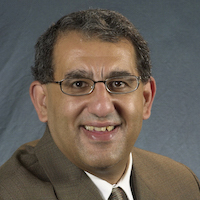
Dr. Joseph Ibrahim
The National Cancer Institute renewed grant funding for the Gillings School’s genomics and cancer research training program. Joseph Ibrahim, PhD, Alumni Distinguished Professor of BIOS and principal investigator for the training program, leads 2016-2017 doctoral student trainees Paloma Hauser, Ruth Huh, Sean McCabe, Douglas Wilson and Laura Zhou.

Dr. David Margolis
The UNC-based Collaboratory of AIDS Researchers for Eradication (CARE) will receive nearly $23 million from NIH over five years to continue research on their innovative ‘kick and kill’ strategy for eradicating HIV. David Margolis, MD, EPI professor at the Gillings School and professor in the UNC School of Medicine, is CARE’s principal investigator.
Andrew Nobel, PhD, BIOS professor, and Fred Wright, PhD, adjunct BIOS professor, are principal investigators for a three-year, $1.2 million National Human Genome Research Institute grant to address statistical challenges that arise in the analysis of next-generation expression quantitative trait loci (eQTL) studies. In such studies, the goal is to identify and quantify how known genetic variants regulate gene expression across multiple tissues.
In fiscal year 2015, the Gillings School was the top public school of public health in terms of NIH funding for the third consecutive year. NIH data listed the School as receiving $58,946,358 in NIH funding, with 79 total awards.
Other Federal Agencies
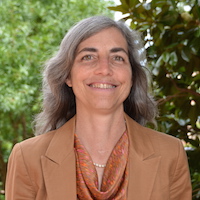
Dr. Barbara Turpin
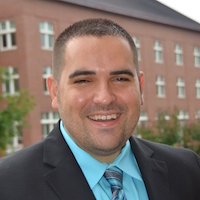
Dr. Jason Surratt
Barbara Turpin, PhD, ESE professor and chair, will work with Jason Surratt, PhD, associate professor of ESE, as investigators on a three-year, $592,448 grant from the National Oceanic and Atmospheric Association. The grant supports their study of the impact of biomass burning on air quality and climate change.
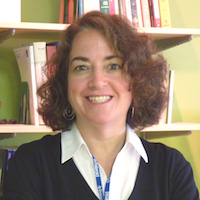
Dr. Dorothy Cilenti
Dorothy Cilenti, DrPH, clinical assistant professor of MCH and director of the National Maternal and Child Health Workforce Development Center, was awarded a one-year, $1.74 million cooperative agreement by the U.S. Division of Workforce Development to support workforce development for state maternal and child health program leaders and staff members.
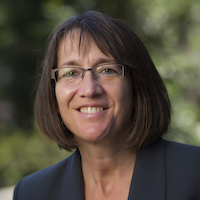
Dr. Beth Moracco
The UNC Injury Prevention Research Center was awarded a four-year, $1.79 million grant from the Centers for Disease Control and Prevention to examine the impact of a rape-prevention education program called ‘Wise Guys: The Next Level.’ Beth Moracco, PhD, research associate professor of HB, will co-lead the evaluation.
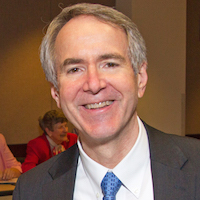
Dr. Herbert Peterson
The World Health Organization Collaborating Center for Research Evidence for Sexual and Reproductive Health, based in MCH, was awarded a multimillion-dollar, up-to-four-year grant from the U.S. Department of Health and Human Services for work in implementation science. The Collaborating Center and JSI Research and Training Institute Inc. jointly will serve as the new Family Planning National Training Center for Service Delivery Improvement. The Collaborating Center’s subcontract award is for about $1.5 million per year to fund the new family planning center’s implementation and improvement activities and assure that its activities are based upon the best science. Herbert Peterson, MD, W.R. Kenan Jr. Distinguished Professor of MCH and director of the WHO Collaborating Center, will chair the new Family Planning Center’s leadership council.
Gates Foundation

Dr. Jennifer Smith
Jennifer Smith, PhD, associate professor of EPI and director of the Cervical Cancer-Free Coalition at the Gillings School, is a principal investigator for a Grand Challenges Explorations Grant, an initiative funded by the Bill & Melinda Gates Foundation. Smith’s $100,000 grant will allow her to work with researchers at Duke University and in Brazil to determine the effectiveness of a urine-based, cervical cancer screening tool.
Other Sources

Dr. Jamie Bartram

Dr. Greg Allgood
A six-year, $2.9M grant from World Vision to The Water Institute at UNC creates a partnership to improve water, sanitation and hygiene interventions in several low- and middle-income countries, with the goal of solving the global water and sanitation crises by 2030. Jamie Bartram, PhD, Water Institute director, leads the work at the Institute. Greg Allgood, PhD, ESE alumnus, is World Vision’s vice president.
Emma Allott, PhD, research assistant professor of NUTR, received the Professor John Fitzpatrick Research Fellowship, a three-year grant award valued at $228,000 to investigate the role of cholesterol in prostate cancer.
The N.C. Institute for Public Health was awarded a $192,265 grant from the Kate B. Reynolds Charitable Trust. The funding will enable N.C.’s Edgecombe and Nash counties to use data analysis and visualization to enhance public health programs, reduce duplicate efforts and more efficiently serve their populations. Amy Belflower Thomas, MHA, MSPH, will administer the two- year grant.
Carolina Public Health is a publication of the University of North Carolina at Chapel Hill Gillings School of Global Public Health. To view previous issues, please visit sph.unc.edu/cph.
